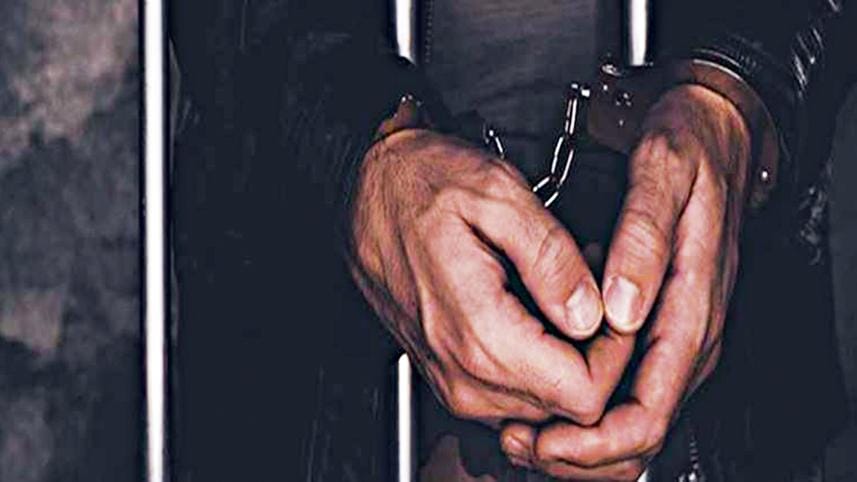State’s liability in cases of custodial torture and death

Recently, the Supreme Court of Sri Lanka in the case of Rathnayake Tharanga Lakmali v Niroshan Abeykoon, Suraweera Arachchige Wasantha and others, ordered the police inspectors liable for a fake encounter and custodial death and also the State to pay compensation to the widow of the deceased victim of the encounter. Although right to life is not explicitly mentioned in the Constitution of Sri Lanka, the Court concluded that the prohibition on torture or cruel, inhuman or degrading treatment or punishment under article 11 of the constitution and the requirement for an order of a competent court to impose punishment of death or imprisonment under article 13(4), read in light of international conventions ratified by Sri Lanka, such as the UDHR, the ICCPR, etc. affirm the notion of right to life. The Court alongside imposing fines on the culprits, also ordered the State to pay Rs. 1 million as compensation to the wife of the deceased as it was the State's responsibility to protect every citizen of the country and having failed its responsibility in that instance, the State has violated the fundamental rights of the deceased victims.
The Prevention of Torture and Custodial Death Act 2013 was enacted by the Government of Bangladesh in order to adhere to the commitments of the Convention against Torture and Other Cruel, Inhuman or Degrading Treatment or Punishment, 1984 and to implement article 35(5) of the Constitution that prohibits torture or cruel, inhuman, degrading punishment or treatment. Under section 15 of the Act, a person who tortures another person and as a result causes the death of the latter, may be imprisoned for life and fined up to Tk. 1 lakh, and in addition he/she may have to pay Tk. 2 lakh to the aggrieved person (victim/family members of the victim). The Act does not explicitly provide penalty for public officers and law enforcement agencies responsible for the death of any individual in custody.
However, the decision of the Supreme Court of Sri Lanka in Rathnayake Tharanga Lakmali, though it being a foreign judgment, clearly illustrates that both the State along with the police officers are responsible for death of any individual in police custody. In fact, it is not the first instance that a court in South Asia has held that the State can also be liable for custodial death along with its law enforcing agents. In SAHELI v Commissioner of Police (1990), a case regarding the death of a child in police custody, the Supreme Court of India stated that the State is liable for the tortious liability of its agents. The fact that the State was vicariously liable for the acts of public servants was also stated in the case of D.K. Basu v State of West Bengal. Thus, it can be inferred that the State must also pay compensation to the family of the victim of a custodial death.
The reasoning for compelling the State to pay compensation for custodial death does not stem from the necessity to pay more money to the victim's family members. But it is rather necessitated in order to create a nexus between the custodial death and the State's failure to protect an individual – since the State is constitutionally and legally obligated to protect its citizens. As stated by the Supreme Court of USA in DeShaney v Winnebago County Department of Social Services (1989), it is the duty of the State to protect a person in its custody; as such person does not have any ability to protect himself. When a person is in the custody of a law enforcement agency, it becomes the positive duty of the State to assure his right to life. Making the law enforcement agencies only liable to pay compensation and serve imprisonment, does not do complete justice to the victims. In Supreme Court Legal Aid Committee v State of Bihar, it was held that the omissions of the public servants vested with a duty as cast by law would make it implicit for the master to answer the lapse. Thus, the State is not absolved from its liability, even when the culprits have been apprehended. And when it comes to violation of fundamental rights, the excuse of sovereign immunity is inapplicable.
Payment of compensation by the Government alongside that of the culprits, even when the law does not stipulate that, is not unlawful. The Indian Supreme Court observed in Rahul Singh v State of Punjab, that the court can pass an order for payment of money as compensation for deprivation fundamental right to life and liberty. As stated in Byrne v Ireland (1972), if there is a failure to discharge the constitutional obligations, the remedy must be sought from the State itself.
THE WRITER IS AN LLM STUDENT, DEPARTMENT OF LAW, UNIVERSITY OF CHITTAGONG.



 For all latest news, follow The Daily Star's Google News channel.
For all latest news, follow The Daily Star's Google News channel.
Comments